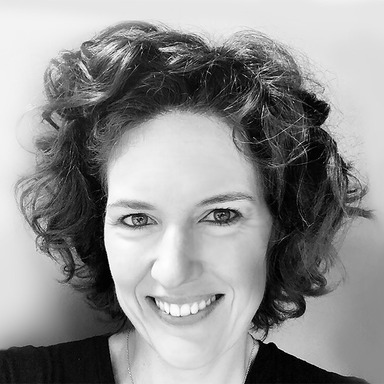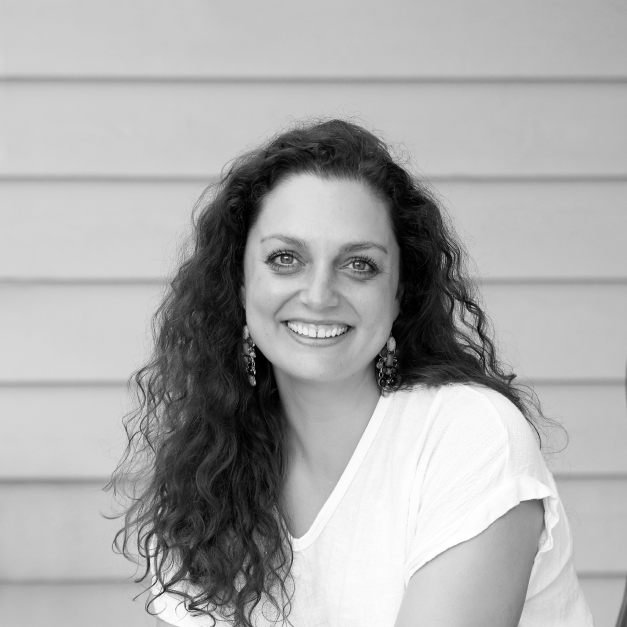
ASKING FOR A FRIEND
How do I break into a creative role without experience of being a creative?
ASKING FOR A FRIEND - QUESTION
Breaking into the creative industry without experience feels impossible, but it's a challenge nearly everyone faces. Maria Devereux, Executive Creative Director at Accenture Song with extensive creative leadership experience, and Andy Wright, CEO of Streamtime, share honest advice about the determination and resilience needed to land that first creative role. They discuss why genuine human connections matter more than perfect CVs, how to handle the inevitable rejections, and why the skills you develop breaking in will serve your entire creative career. This practical discussion offers hope and concrete strategies for anyone wondering how to break into a creative role without experience, plus resources from Never Not Creative that can support your journey.
Getting your foot in the door of the creative industry without existing experience can feel like an impossible catch-22. You need experience to get the job, but you need the job to get experience. It's a frustrating cycle that leaves many talented people wondering if they'll ever break through.
The truth is, this challenge is more common than you might think. Nearly everyone in the creative industry has faced this exact dilemma at some point. The good news? There are proven strategies that can help you navigate this tricky transition, and it often comes down to connection, determination, and showing up authentically.
This question was answered by Maria Devereux, Executive Creative Director at Accenture Song in North America with extensive experience in creative leadership and talent development, and Andy Wright, Host and CEO of Streamtime, who brings deep knowledge of creative career development and industry dynamics.
It takes determination and resilience
Breaking into creative work without experience requires a particular mindset. As Maria explains: "It is tough isn't it, it's tough trying to get that first bit of experience and I think it takes a bit of determination in terms of accepting that there might be setbacks."
This isn't about discouraging you, it's about setting realistic expectations. The creative industry can be challenging to enter, but understanding this upfront helps you prepare mentally for the journey ahead. Setbacks aren't personal failures, they're part of the process that nearly everyone experiences.
Andy adds an important perspective on why this resilience matters long-term: "Being a creative is 99% rejection like you're gonna get one out of every 100 ideas that gets sold, which might be a slight dramatisation but there is a certain level of resilience." The skills you develop while breaking into the industry, particularly handling rejection and bouncing back, will serve you throughout your creative career.
Focus on making genuine connections
The most powerful advice from this discussion centres on human connection. Maria emphasises: "I think the more people you meet the more chance you've got of sitting across from someone who you know you're just suddenly like yeah damn like we we totally think the same we get along and that person's likely to give you a shot."
This isn't about networking in the traditional, transactional sense. It's about finding people you genuinely connect with who might see your potential. In creative industries, cultural fit and shared vision often matter as much as technical skills.
Andy reinforces this point: "You're going to have to knock on the door like literally have the stuff in there that is going to get like once you get in the room with someone... it's not about at that point then what was on your cv, it's about how are you having that conversation with the person that's right in front of you."
Get in the room and show who you are
Your CV might not tell the full story of your potential, but a face-to-face conversation can. The goal is to create opportunities for genuine dialogue where your personality, passion, and thinking can shine through.
This means being proactive about meeting people in the industry. Attend events, reach out for informational interviews, engage with creative communities online, and look for any opportunity to have real conversations with people doing the work you want to do.
Understanding the creative mindset
There's an interesting paradox in creative work that's worth understanding early. Andy notes: "There's an interesting tension there as a creative person because we're often quite empathetic we feel things we think about things quite deeply and then we're thrown into an environment where you are required to handle setbacks that to be resilient."
This tension between sensitivity and resilience is something many creatives navigate throughout their careers. Recognising this early can help you develop healthy coping strategies and understand that feeling things deeply while also bouncing back from rejection is a normal part of creative life.
How Never Not Creative Circles can support your journey
Breaking into the creative industry can feel isolating, especially when you're facing repeated rejections or struggling with self-doubt. Never Not Creative Circles offer peer support groups specifically designed for creatives navigating challenges like yours.
These monthly sessions connect you with other creatives in similar situations, providing a safe space to share experiences, get advice, and build resilience together. The program includes mental health support and practical guidance that can be invaluable during the often stressful process of career transition. Learn more about NNC Circles.
Leverage the Never Not Creative Internship Guide
If you're considering internships as a pathway into creative work, the Never Not Creative Internship Guide and Resources can be incredibly helpful. This comprehensive guide provides templates and advice for both interns and employers, helping you understand what to expect and how to make the most of internship opportunities.
The guide includes preparation forms, onboarding advice, and feedback templates that can help you approach internships professionally and get maximum value from the experience. Access the Internship Guide and Resources.
Consider Never Not Finishing School
Never Not Finishing School is specifically designed to bridge the gap between creative education and employment. This seven-session online program covers exactly the challenges you're facing: how to look for employment, how to talk about yourself and your work, and crucially, how to maintain your wellbeing throughout the process.
The program connects recent graduates with industry leaders and provides practical advice on navigating those crucial first steps into creative careers. It's designed for graduates of creative courses who need support transitioning into the workforce. Find out more about Never Not Finishing School.
Your creative journey starts with persistence
Breaking into a creative role without experience isn't easy, but it's absolutely possible. The key is combining determination with genuine human connection, being prepared for setbacks while staying focused on your goals, and remembering that everyone in the industry has faced similar challenges.
Don't give up on your creative dreams. As Maria says: "My advice would be don't give up and don't lose sight of the dream." Your unique perspective and fresh enthusiasm are valuable assets. Sometimes it just takes finding the right person at the right time who sees your potential and is willing to give you that crucial first opportunity.
our guests
Industry Leader

Maria Devereux
Accenture Song
Mental Health Expert

Katie Feder
Host

